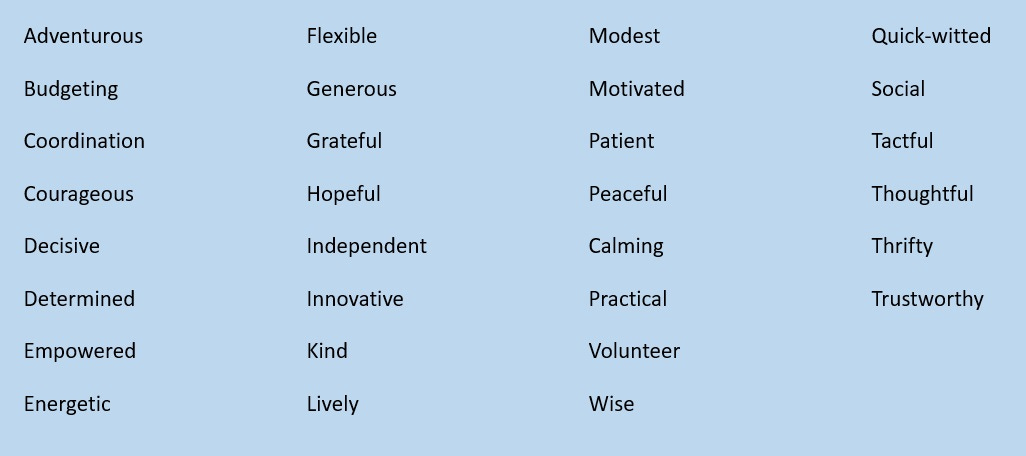We are stronger than we think…
A strengths audit helps our self-awareness to work with success in mind.
This week’s post is all about strengths. But before I start I admit a weakness - it is about promoting my new book, The 10 Pillars of Success. It comes out today and having to self-promote feels so so uncomfortable. So here is the link - would love you to buy it - but if funds are tight or coaching type books are not your thing - then just scroll down to get a lovely task to do that costs absolutely nothing (except your modesty if you are usually very humble) and will help you be even more brilliant than usual.
Josie x
This week I was privileged to speak to a cohort of new apprentices (all members of the Association of Apprentices - a fantastic organisation I am privileged to do some work with) who are just about to start in their workplaces. We worked on bringing their full selves to work by focusing on what they are great at. 150 of them worked together to identify their strengths and each left the session with 10 identified.
Sport Psychologists will often work from a strengths-based approach. We will help athletes build self-awareness of what they are great at and help them do more of it. The strengths we are looking for will be skills, traits or activities that can help us in our work, sport or lives. Of course, we can’t ignore weaknesses but we can try to design our worlds more around those things we are brilliant at and enjoy so that we feel less pressure and stress. It brings some comfort into the process of performance so we feel safer to stretch ourselves into the really tough things.
Strengths based approaches can be so effective towards great performance because our memories are not always reliable and often the memories we use reflect how we feeling at that exact moment. So, after a bad day in a job we find it hard to remember that the other 21 days this month were actually pretty good and we did a brilliant job.
As humans we are prone to a number of cognitive biases:
· Confirmation bias where we are more likely to notice things which support what we already believe
· Negativity bias where we focus more on negative information than positive.
Countering these biases by intentionally promoting positive elements, reminders and memories can help us to stop downplaying everything good and seeing it through this negative lens. Conducting a strengths audit helps us boost our confidence and see clearly what we can use to help use perform well. It will help us focus on ourselves, our skills and abilities, not on those of our competitors.
You can run your own strengths audit…
Pick from here two strengths around the way you approach work tasks:
Find two strengths you use a lot in your personal life:
Pick two strengths around the way you work with others:
Which two strengths can you see in the way you communicate:
Finally, two strengths that served you well when you were in education:
So now you should have 10 strengths written down.
If you were to answer the question: I perform at my best when… which of your ten strengths would help you do that? Is there one that stands out? That will be your super strength. Hug it tight, be very proud of it and look out for opportunities to use it.







